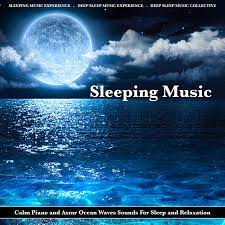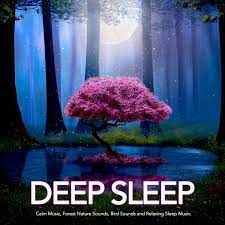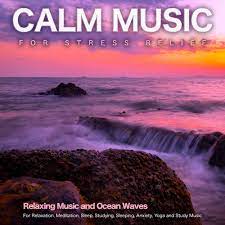Deep Relaxation Music: Unwind and Find Inner Peace
In today’s fast-paced world, finding moments of tranquility and inner peace can be a challenge. The constant buzz of technology, work pressures, and daily responsibilities can leave us feeling overwhelmed and stressed. However, there is a powerful tool that can help us escape the chaos and find solace within ourselves: deep relaxation music.
Deep relaxation music is a genre of music specifically designed to induce a state of calmness and deep relaxation. It incorporates soothing melodies, gentle rhythms, and ambient sounds that work harmoniously to create an atmosphere conducive to relaxation. This type of music has been used for centuries as a means to unwind, meditate, and promote overall well-being.
One of the main benefits of deep relaxation music is its ability to slow down our breathing and heart rate. As we listen to the serene melodies and gentle rhythms, our bodies naturally respond by entering into a state of deep relaxation. This triggers the release of endorphins, which are natural mood enhancers that promote feelings of tranquility and contentment.
Moreover, deep relaxation music has been found to reduce stress levels significantly. Listening to calming tunes helps activate the parasympathetic nervous system, which is responsible for promoting rest and relaxation in our bodies. As a result, stress hormones such as cortisol decrease while feelings of calmness increase.
Another remarkable aspect of deep relaxation music is its impact on sleep quality. Many individuals struggle with insomnia or have difficulty falling asleep due to racing thoughts or anxiety. By incorporating this type of music into their bedtime routine, they can create an environment that promotes better sleep. The soothing melodies help quiet the mind and relax the body, allowing for a more restful night’s sleep.
Furthermore, deep relaxation music has been known to enhance mindfulness practice. When we engage in mindfulness meditation or other mindful activities like yoga or tai chi while listening to this type of music, it becomes easier to enter a state of deep focus and awareness. The music acts as a gentle guide, helping us stay present in the moment and cultivate a sense of inner peace.
In addition to its numerous benefits, deep relaxation music is also highly accessible. It can be easily found on various platforms such as streaming services, YouTube channels, and even dedicated relaxation music apps. This means that regardless of where we are or what we’re doing, we can always have access to this powerful tool for relaxation.
In conclusion, deep relaxation music offers a gateway to finding inner peace and tranquility amidst the chaos of our daily lives. Its soothing melodies and calming rhythms have a profound impact on our physical and mental well-being. By incorporating this genre of music into our routines, we can experience reduced stress levels, improved sleep quality, enhanced mindfulness practice, and an overall sense of calmness. So why not take a moment today to immerse yourself in the serene sounds of deep relaxation music and embark on a journey towards inner peace?
7 Frequently Asked Questions About Deep Relaxation Music: Everything You Need to Know
- What are the benefits of deep relaxation music?
- How can I use deep relaxation music to help me relax?
- What type of deep relaxation music is best for me?
- Where can I find good quality deep relaxation music?
- How often should I listen to deep relaxation music?
- Is there a difference between meditation and deep relaxation music?
- Can listening to deep relaxation music help with stress relief and anxiety reduction?
What are the benefits of deep relaxation music?
Deep relaxation music offers a multitude of benefits for our physical, mental, and emotional well-being. Here are some of its key advantages:
- Stress Reduction: Deep relaxation music has a remarkable ability to reduce stress levels. Its soothing melodies and gentle rhythms help activate the parasympathetic nervous system, promoting rest and relaxation in our bodies. This leads to a decrease in stress hormones and an increase in feelings of calmness.
- Improved Sleep Quality: Many individuals struggle with sleep issues such as insomnia or difficulty falling asleep due to racing thoughts or anxiety. Deep relaxation music can be incredibly helpful in creating a conducive environment for better sleep. The calming tunes help quiet the mind and relax the body, leading to a more restful night’s sleep.
- Enhanced Mindfulness Practice: Deep relaxation music can support mindfulness practice by facilitating deep focus and awareness. When engaging in activities like mindfulness meditation, yoga, or tai chi while listening to this type of music, it becomes easier to enter a state of presence and inner peace. The music acts as a gentle guide, helping us stay grounded in the present moment.
- Mood Enhancement: Listening to deep relaxation music triggers the release of endorphins – natural mood enhancers that promote feelings of tranquility and contentment. This can have a positive impact on our overall mood and emotional well-being, helping us feel more relaxed, uplifted, and at ease.
- Anxiety and Tension Relief: The serene melodies and ambient sounds found in deep relaxation music have a calming effect on our nervous system. It can help alleviate symptoms of anxiety, reduce muscle tension, and promote a sense of deep relaxation throughout the body.
- Increased Productivity and Focus: Taking short breaks during work or study sessions to listen to deep relaxation music can boost productivity and focus levels. It provides an opportunity for mental rejuvenation by allowing our minds to rest from constant cognitive demands.
- Promotes Emotional Healing: Deep relaxation music can serve as a therapeutic tool for emotional healing. It creates a safe space for self-reflection, introspection, and processing of emotions. It can help us release emotional tension, find inner peace, and foster a sense of emotional well-being.
- Overall Well-being: By incorporating deep relaxation music into our daily routines, we can experience an overall improvement in our well-being. It supports our physical health by reducing stress-related ailments, enhances mental clarity and focus, and promotes emotional balance and resilience.
In summary, deep relaxation music offers a wide range of benefits that positively impact our physical, mental, and emotional states. Whether it’s reducing stress levels, improving sleep quality, enhancing mindfulness practice, or promoting overall well-being, this genre of music provides a powerful tool for finding inner peace and tranquility in our busy lives.
How can I use deep relaxation music to help me relax?
Using deep relaxation music to help you unwind and relax is a simple and effective practice. Here are some tips on how to incorporate it into your routine:
- Find a quiet and comfortable space: Choose a peaceful environment where you can relax without distractions. It could be your bedroom, a cozy corner in your living room, or even outdoors in nature.
- Set the mood: Dim the lights, light some candles, or create a soothing ambiance that aligns with your personal preferences. This will enhance the calming atmosphere and prepare your mind for relaxation.
- Choose the right music: Explore different genres of deep relaxation music and find what resonates with you. It could be instrumental pieces, nature sounds, or gentle vocals. Experiment with different artists and playlists until you discover what brings you the most tranquility.
- Use headphones or speakers: To fully immerse yourself in the music, consider using headphones or high-quality speakers that can deliver clear and immersive sound. This will enhance the listening experience and help you focus on the calming melodies.
- Practice deep breathing: As you listen to the music, focus on your breath. Take slow, deep breaths in through your nose and exhale slowly through your mouth. Allow the music to guide your breathing rhythm, helping you relax further with each breath.
- Let go of thoughts: As thoughts arise during this time of relaxation, acknowledge them without judgment and gently let them go. Redirect your attention back to the soothing sounds of the music, allowing it to transport you into a state of tranquility.
- Engage in mindful activities: While listening to deep relaxation music, engage in activities that promote mindfulness such as meditation, stretching, gentle yoga poses, or simply sitting in stillness. Allow yourself to fully immerse in the present moment and embrace the sensations of peace and calmness.
- Create a regular practice: To truly experience the benefits of deep relaxation music, make it a regular part of your routine. Set aside dedicated time each day or week to indulge in this practice and allow yourself to fully unwind and recharge.
Remember, everyone’s preferences and responses to music are unique. Explore different styles and experiment with various techniques until you find what works best for you. With consistent practice, deep relaxation music can become a powerful tool to support your overall well-being and help you find inner peace.
What type of deep relaxation music is best for me?
Choosing the best type of deep relaxation music depends on your personal preferences and what resonates with you. Here are a few popular genres and styles to consider:
- Ambient Music: Ambient music is characterized by its atmospheric and ethereal qualities. It often incorporates soft synthesizers, gentle drones, and minimalistic melodies. Ambient music creates a soothing and calming environment ideal for deep relaxation.
- Nature Sounds: Nature sounds, such as raindrops, ocean waves, or bird songs, can transport you to a peaceful natural setting. These sounds have a therapeutic effect on the mind and help create a sense of serenity.
- Instrumental Music: Instrumental music without lyrics allows you to focus solely on the melodies and harmonies, promoting relaxation and tranquility. Genres like classical, piano, or instrumental guitar can be particularly soothing.
- Binaural Beats: Binaural beats involve playing two slightly different frequencies in each ear, creating an auditory illusion that affects brainwave activity. Different frequencies are associated with various mental states like relaxation or deep meditation.
- Meditation Music: Specifically designed for meditation practice, meditation music often combines elements of ambient music, nature sounds, and gentle rhythms to guide you into a state of deep relaxation and mindfulness.
- Spa Music: Spa music is commonly played in wellness centers during massages or spa treatments due to its calming nature. It typically features soft instrumentals or ambient sounds that promote relaxation.
Ultimately, the best type of deep relaxation music for you is the one that resonates with your personal taste and helps you feel calm and at ease. Experiment with different genres and styles to find what works best for you – whether it’s soft piano melodies, gentle rain sounds, or meditative chants – listen to your intuition and choose what brings you the most peace and tranquility.
Where can I find good quality deep relaxation music?
Finding good quality deep relaxation music is easier than ever, thanks to the availability of various platforms and resources. Here are a few places where you can discover and access high-quality deep relaxation music:
- Streaming Services: Popular music streaming platforms like Spotify, Apple Music, and Amazon Music offer a wide array of curated playlists and albums dedicated to relaxation and meditation. Simply search for keywords such as “deep relaxation,” “meditation,” or “calming music” to explore the available options.
- YouTube: YouTube is a treasure trove of deep relaxation music channels and videos. Many creators specialize in producing high-quality content specifically designed for relaxation purposes. Search for terms like “deep relaxation music” or “ambient music” to find channels that align with your preferences.
- Dedicated Relaxation Apps: There are several mobile apps dedicated to providing deep relaxation music. Apps like Calm, Headspace, Insight Timer, and Relax Melodies offer a vast library of soothing tracks designed to help you unwind and find inner peace.
- Online Radio Stations: Online radio platforms like Pandora or iHeartRadio often have dedicated stations or playlists focused on ambient, new age, or meditation music genres. Explore their catalogues to discover tracks that resonate with you.
- Meditation and Wellness Websites: Websites that focus on meditation, mindfulness, and wellness often provide free or premium access to deep relaxation music tracks and albums. Some popular options include Sounds True, Gaia, and Insight Timer.
- Local Libraries: Check if your local library offers audio CDs or digital downloads of deep relaxation music in their collection. This can be a great way to explore different artists and albums without any cost.
Remember that personal preference plays a significant role in finding the right deep relaxation music for you. Take some time to explore different artists, genres, and styles until you discover what resonates with your unique tastes and needs. Experimenting with various options will help you curate a collection of deep relaxation music that brings you the most profound sense of calmness and tranquility.
How often should I listen to deep relaxation music?
The frequency of listening to deep relaxation music can vary depending on individual preferences and needs. There is no one-size-fits-all answer to this question, as it ultimately depends on how you personally respond to the music and the benefits you wish to experience.
Some individuals find it helpful to incorporate deep relaxation music into their daily routines. They may choose to listen in the morning to start their day off on a calm note, during breaks or lunchtime to alleviate stress, or in the evening as part of a wind-down routine before bed. Regularly incorporating deep relaxation music into your day can help maintain a sense of tranquility and promote overall well-being.
Others may prefer to listen to deep relaxation music on an as-needed basis. For example, if you find yourself feeling particularly stressed, anxious, or overwhelmed, taking a few moments to listen to calming tunes can help you relax and regain focus. Similarly, if you’re having trouble falling asleep or experiencing restlessness at night, incorporating deep relaxation music into your bedtime routine can be beneficial.
Ultimately, the key is to listen to deep relaxation music whenever it feels right for you. Pay attention to your body and mind’s cues and use the music as a tool for finding inner peace and relaxation when needed. Experiment with different times of day and durations of listening sessions until you find what works best for you.
Remember that everyone’s preferences and needs are unique, so trust your instincts and create a listening routine that aligns with your personal goals and lifestyle. Whether it’s daily listening or occasional use during moments of stress, incorporating deep relaxation music into your life can be a powerful tool for promoting well-being and finding inner peace.
Is there a difference between meditation and deep relaxation music?
Yes, there is a difference between meditation and deep relaxation music. While both practices can promote relaxation and inner peace, they involve different approaches and techniques.
Meditation is a mindfulness practice that involves training the mind to focus and redirect thoughts. It typically requires intentional effort and concentration. During meditation, individuals often sit in a quiet space, close their eyes, and engage in specific techniques such as focusing on the breath, repeating mantras, or visualizing peaceful imagery. The goal of meditation is to cultivate a state of mental clarity, awareness, and tranquility.
Deep relaxation music, on the other hand, is a tool that can be used during meditation or as a standalone practice. It involves listening to soothing melodies and gentle rhythms designed to induce a state of calmness and deep relaxation. Deep relaxation music helps create an ambient environment that supports relaxation by slowing down the heart rate, reducing stress levels, and promoting feelings of tranquility.
While meditation requires active participation and mental focus, deep relaxation music provides a passive experience where individuals can simply listen and allow the music to guide them into a state of relaxation. It can be particularly helpful for those who find it challenging to quiet their minds or enter into a meditative state without external support.
In summary, meditation involves actively training the mind through specific techniques to achieve mental clarity and tranquility. Deep relaxation music serves as a supportive tool that can enhance the meditative experience or be used independently to induce relaxation and promote inner peace. Both practices have their unique benefits but can complement each other in creating a sense of calmness in our lives.
Can listening to deep relaxation music help with stress relief and anxiety reduction?
Absolutely! Listening to deep relaxation music can be an effective tool for stress relief and anxiety reduction. The soothing melodies, gentle rhythms, and ambient sounds in this genre of music have a calming effect on the mind and body, promoting a sense of relaxation and tranquility.
When we experience stress or anxiety, our bodies go into a heightened state of alertness, releasing stress hormones like cortisol. Deep relaxation music helps counteract this response by activating the parasympathetic nervous system, which is responsible for promoting rest and relaxation. As a result, stress hormone levels decrease, and feelings of calmness increase.
Moreover, deep relaxation music can help shift our focus away from anxious thoughts or external stressors. By immersing ourselves in the serene sounds and gentle melodies, we divert our attention to the present moment. This redirection of focus allows us to let go of worries and anxieties temporarily, providing a much-needed mental break.
The rhythmic patterns in deep relaxation music also have a soothing effect on our breathing and heart rate. As we listen to the music’s gentle rhythms, our bodies tend to synchronize with the tempo, naturally slowing down our breathing and heart rate. This rhythmic entrainment helps induce a state of deep relaxation and promotes a sense of calmness within us.
Additionally, deep relaxation music can serve as an anchor or point of reference during moments of stress or anxiety. By associating this type of music with feelings of tranquility and peace through repeated listening sessions, we can create an auditory cue that signals our bodies to relax when we encounter stressful situations.
It’s important to note that while deep relaxation music can be beneficial for stress relief and anxiety reduction, it may not be a standalone solution for everyone. It is always advisable to seek professional help if you are experiencing chronic or severe levels of stress or anxiety. However, incorporating deep relaxation music into your daily routine as part of self-care practices can complement other strategies and contribute to overall well-being.
So, if you’re looking for a natural and accessible way to alleviate stress and reduce anxiety, consider incorporating deep relaxation music into your daily life. Take a few moments each day to immerse yourself in its calming melodies, and allow yourself to experience the soothing effects it can have on your mind and body.




